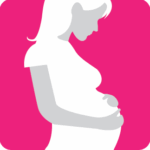

Bradford Teaching Hospitals Foundation Trust (BTHFT) is committed to giving the best care for all patients. Thank you for choosing BTHFT for your surgery.
There are lots of germs on our skin and in the environment around us. Most are harmless and some are beneficial but small proportions are harmful, and our skin protects us from those germs that are harmful.
You are advised to have a shower or bath using soap / shower gel, the day before and on the day of your surgery. Showering or bathing helps reduce the number of germs on the skin. Women having keyhole surgery should clean their belly button (umbilicus).
Hair at the site of the operation should not be removed with a razor, or by waxing in the week before surgery as this can increase the risk of infection by damaging the skin surface. If it is necessary to remove hair this will be done safely at the time of your surgery.
Staying warm before surgery will lower the risk of complications including infection. Bring additional clothing, such as a vest, dressing gown and slippers, to help keep comfortably warm before and after surgery. Tell staff if you feel cold at any time during your hospital stay.
Your wound will have a dressing on; this will have been put on in theatre. Any health professional wishing to see your wound or remove stitches/clips will wash their hands before and after changing your dressing. They will also wear gloves during the procedure to reduce the chance of wound infection. It is OK to challenge any health professional who does not wash their hands before and after changing your dressing – do not be afraid to challenge.
Whilst the procedure is taking place you should not touch the area exposed. This could introduce ‘germs’ to the wound which may lead to an infection.
If you feel the need to cough or sneeze when the dressing is being removed or changed, please turn your head away from the exposed wound, use a tissue and wash your hands as soon as you can.
You should not remove the dressing unless instructed by a health care professional. If the dressing starts to come off, please inform a member of the health care team.
A surgical wound infection occurs when germs from the skin or the environment enter the incision (cut) that will be made by the surgeon for your operation.
A surgical wound infection can develop at any time from two or three days after surgery until the wound has healed (usually two to three weeks after the operation).
You may develop one or more of the symptoms listed below:
If you have questions about the risk of infection associated with your surgery / procedure please ask the nurse, midwife or doctor caring for you and they will discuss any concerns you have.
If the nurse, midwife or doctor suspects that you have a surgical wound infection, they may take a wound swab. This is sent to the laboratory for tests, and you may be prescribed antibiotics to treat the infection.
If you have any concerns about your wound then please speak to your nurse, midwife or doctor.
If you think you may have an infection after you have been discharged home tell your visiting health professional or contact your GP’s surgery and explain that you have recently had surgery and you think you may have an infection.
GOV.UK website
Surgical wound infection - Search - GOV.UK (www.gov.uk) has a section on surgical wound infections which includes the latest report. You need to type in surgical wound infection in the search button in the top right-hand corner of the website.
You can contact us using the Relay UK app. Textphone users will need to dial 18001 ahead of the number to be contacted.
Bradford Teaching Hospitals NHS Foundation Trust is a smoke-free organisation. You are not permitted to smoke or in use e-cigarettes in any of the hospital buildings or grounds.